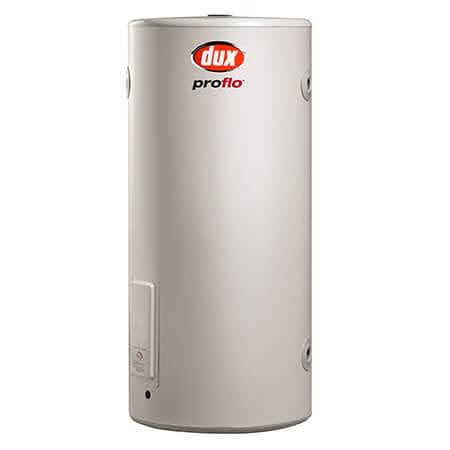While electric systems are best known for their reliability and installation ease, mounting electricity prices and efficiency concerns may leave you questioning if they’re the best fit for your household’s hot water needs.
Let’s glance at the types of electric hot water systems and which one is right for you.
Types of Hot Water Systems
Instantaneous: Instant water heaters are highly sought-after because they save energy and need less room to set up. Unlike tanks that store hot water, instant heaters operate only when you turn on a tap, so they only heat cold water when you need it. It saves energy; however, if everyone’s using it at the same time, you may have to wait a bit for the hot water.
Storage Tank: The storage tank electric hot water system is prevalent in Aussie homes. These heaters run on electricity to warm up cold water, which is then stored in an insulated tank. These tanks can hold a lot of hot water, so you’ve plenty of hot water even when everyone’s using it at the same time.
Heat Pumps: Heat pumps work differently compared to the other two hot water systems. They use electricity to move heat around. This method is super-efficient for heating water electrically; however, at times, heat pumps can have issues, and finding replacement parts can be challenging.
Electric Storage Tank
Inside the storage tank, there are one or two electric parts that heat the water. Cold water goes into the bottom of the tank and gets warmed up by these parts. As it heats up, the water moves up to the top of the tank and stays there until you need it for showers, sinks, or appliances like dishwashers and washing machines.
Thermostats outside the tank control how hot the water gets, typically set to 60°C. This temperature is safe and stops bacteria from growing in the tank. If the water pressure gets too high inside the tank, a pressure release valve opens up to let some water out through an overflow pipe.
Advantages of Electric Storage Water Heating Systems
Electric storage water heaters are still widely used in Australian households. What makes them sought-after?
- Reduced initial investment.
- Numerous storage setups can link to off-peak energy periods for decreased operational expenses.
- Available for indoor or outdoor setup.
- Electric storage water heaters are reliable, with a lifespan typically lasting between 10-15 years.
- They guarantee consistent water pressure throughout the entire household.
- Storage heaters are easily accessible and relatively straightforward to install.
What are the limitations of storage water tanks?
Storage water heaters might not be your best bet if you’re focused on keeping your long-term operating costs low.
- They will heat the water slowly, so they will take some time.
- It is one of the most expensive hot water systems to run, especially if they aren’t connected to off-peak energy periods.
- Storage water tanks are the least energy-efficient option since they need a constant energy supply to offset natural heat loss.
- Your home loses access to hot water during a power outage.
- If they’re not connected to off-peak energy periods, they can be one of the priciest hot water systems to maintain.
- Storage water tanks occupy considerable space because they need to be large enough to store your household’s hot water supply.
- Both a plumber and an electrician are required for installation.
Instantaneous Electric Water Heating
Instant electric hot water systems are also referred to as continuous-flow water heating systems. They are a space-saving breakthrough that delivers hot water right when you need it. These heaters work with a heat exchanger. When you need hot water, cold water flows through a copper pipe wrapped around the heat exchanger, where it gets heated up before dispensing the hot water from the designated tap.
Advantages of Instantaneous Water Heating Systems
Instant electric water heaters are a smart choice for anyone looking to cut down on energy costs, as they’re more efficient than traditional storage models.
- They are perfect for both indoor and outdoor installation.
- Their small size saves space.
- They only heat water when it’s needed, so energy is not wasted on storing hot water.
- Instantaneous water heaters have a long lifespan.
What are the limitations of instant water heaters?
While they’re speedy, efficient, and space-saving, instant hot water systems do have their downsides.
- Instantaneous water heaters might need help meeting household demands, resulting in inconsistent temperatures and delays in hot water delivery.
- It is a lengthier installation and necessitates both a plumber and an electrician.
- They may need regular maintenance.
- Significant upfront expenses, at times, doubling the standard price of a storage water heater.
- There’s no hot water supply during a power outage.
Is Electric Hot Water Systems Right for You?
Electric hot water systems are dependable and easy to install and maintain. However, considering the increasing electricity costs, they might not suit your specific needs. Due to their inefficiency, electric storage hot water systems are slowly being phased out in certain areas. In such a scenario, gas and solar options become the only water-heating options.
If you want to go with electric, you can opt for Rheem or Rinnai Hot Water Systems, which will serve you for significant years with regular maintenance.


